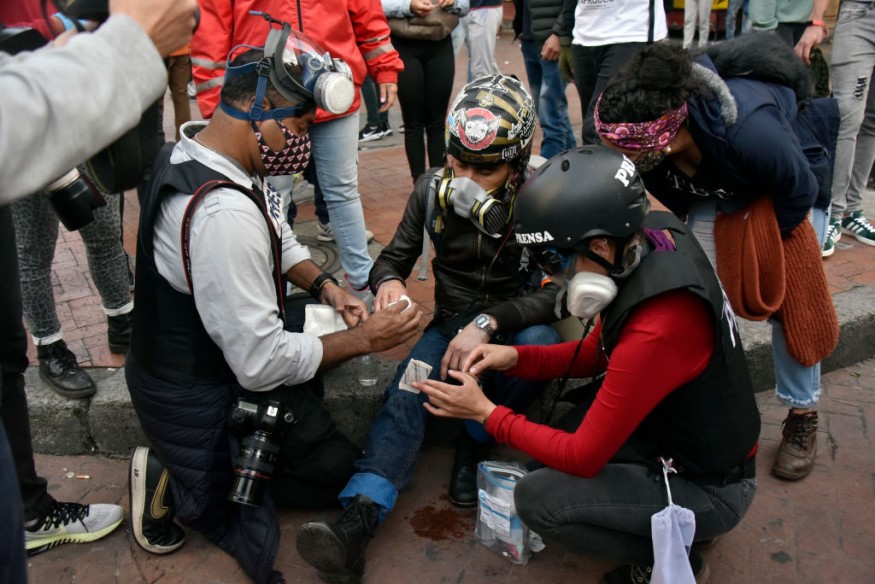Police Brutality 'Out of Control' in Latin America

Countries in Latin America are not only struggling to battle the coronavirus pandemic, but its citizens are also injuries brought by police brutality.
There is currently a widespread outrage in Chile due to a police officer who threw a demonstrator off a bridge.
The protests were the same as last year, clamoring for better health care.
Reports said that police forces have already killed more than 30 people. Meanwhile, hundreds of demonstrators have suffered eye injuries, with police sometimes firing rubber bullets directly at their faces.
Colombia also faces the same problem when law student Javier Ordonez died in early September.
Ordonez was beaten by the police at the police station. He reportedly drank alcohol on the street, which is a violation of regulations brought by the pandemic.
In Bogota, police forces have already killed 13 people during the two days of violent protests.
Around 66 civilians and 200 police officers were wounded, while 200 buses were vandalized.
A total of 54 small police posts were destroyed.
Ordonez's death caused an outrage. Many protesters opted for a more peaceful way.
However, some resorts to violence such as destroying police posts and vandalizing properties.
Reports said that police force in Bogota has committed several illegal and violent acts on citizens.
Many were recorded on mobile cameras. Videos showed police officers kicking and clubbing people already on the ground.
In addition, police were also caught on camera wearing plainclothes mean and wearing ski masks.
One bystander was killed after a fatal bullet was shot to his heart. Her name was Julieth Ramirez and was 18-years-old.
First female leader of Bogota, Mayor Claudia Lopez, said that the police were disobeying her with such violence.
A 30-year-old Mexican man, Giovanni Lopez, also died after being in police custody for not wearing a face mask as it was required as per the law.
Mexican police reportedly use torture methods that were almost as feared as those employed by drug cartels.
"The level of violence and extrajudicial executions is completely out of control in many places," Fernanda Doz Costa from the human rights organization Amnesty International was quoted.
Latin America Police Brutality
Agustina Carrizo de Reimann, who is a historian, is doing a study on police brutality on Latin America.
Reimann said that the excessive police force seems to be rooted from a structural problem that has been around for some time.
In addition, role in security force during the authoritarian regime and dictatorships in many Latin American states partly plays a portion.
The security structure of some Latin American countries also factors in.
For instance, the Colombian National Police are part of the National Defense.
This cause a huge part of the command authority rests on the central government, with the local government left with limited control.
The structural system is unique in Latin American countries.
Doz Costa claims many police officers still have the same outlook.
Doz Costa said that the pandemic has also contributed to the need for an opportunity to have police reform.
She recommends the change in security agencies must include recruitment measures, better pay, and end to impunity.
Want to read more?
Subscribe to Latin Post!
Sign up for our free newsletter for the Latest coverage!
© 2026 Latin Post. All rights reserved. Do not reproduce without permission.














